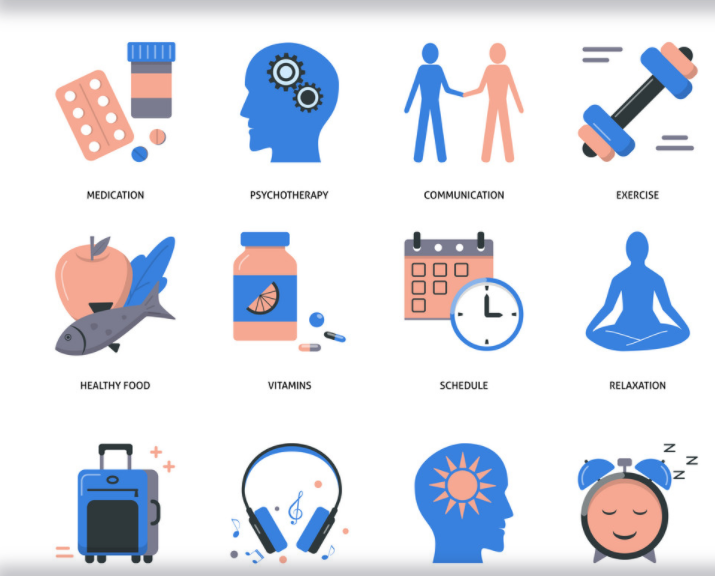
Getting to Know Mental Health: Unveiling the Complexities and Pathways to Wellness
Mental health is a facet of our lives that touches us all, encompassing emotions, thoughts, and behaviors. It’s a dynamic landscape that traverses both highs and lows, impacting our overall well-being. Let’s delve into the intricacies of mental health, exploring its definition, the spectrum of challenges, and the avenues towards fostering a healthy mind.
Getting to Know Mental Health: Beyond the Surface
- Understanding Mental Health: Mental health encompasses our emotional, psychological, and social well-being. It affects how we think, feel, and interact with the world around us.
The Spectrum of Human Emotions:
- Normalcy of Tough Times: It’s natural for everyone to experience tough emotions like sadness, anxiety, and grief. These reactions are a part of being human.
Unveiling Mental Health Struggles: When is it More?
- Persistent Impact: When emotions like depression, anxiety, and stress linger and start to hinder daily functioning, it might be a sign of a deeper issue.
- Interference with Life: Mental health struggles can affect work, relationships, education, and overall quality of life.
Defining Optimal Mental Health: Holistic Well-Being
- Beyond Absence of Illness: Good mental health isn’t merely the absence of mental disorders. It encompasses thriving, enjoying life, and achieving one’s potential.
- Well-Rounded Existence: Optimal mental health allows us to handle stress, navigate challenges, and engage meaningfully with our communities.
Peering into Mental Illness: Understanding the Landscape
- Enduring Negative Thoughts and Feelings: Mental illness arises when negative thoughts and feelings persist, causing significant distress.
The Spectrum of Mental Illness: From Mild to Severe
- Varied Manifestations: Mental illness encompasses a wide range of conditions, varying in severity and impact.
- Long-Term Support: Severe cases often require ongoing support and treatment, sometimes throughout life.
Getting Acquainted with Mental Illness Examples:
- ADHD (Attention-Deficit/Hyperactivity Disorder): Challenges in attention and hyperactivity.
- Alcohol Problem: Unhealthy dependence on alcohol.
- Asperger’s Disease: Difficulties in social interaction and behavior.
- Bipolar Disorder: Swings between depressive and manic episodes.
- Depression: Persistent sadness and loss of interest.
- Phobia: Intense fear of specific situations or objects.
- Schizophrenia: Disordered thinking and hallucinations.
- Anxiety and Worry: Excessive apprehension about various aspects of life.
- And Many More: The spectrum includes conditions like autism, borderline personality disorder, postpartum depression, generalized anxiety disorder, panic disorder, and more.
Seeking Help and Nurturing Wellness:
- Acknowledging the Need: Recognizing signs of mental distress and the need for help is crucial.
- Professional Support: Just as we seek medical help for physical ailments, seeking mental health support is vital.
- Path to Recovery: Timely intervention and treatment pave the way to recovery and improved well-being.
Embracing Mental Health as a Journey:
- Destigmatizing Conversations: Open discussions about mental health reduce stigma and encourage seeking help.
- Fostering Resilience: Building emotional resilience equips us to face life’s challenges with a healthier mindset.
- Holistic Self-Care: Practices like mindfulness, exercise, balanced nutrition, and nurturing social connections contribute to mental well-being.
In Conclusion: Navigating Mental Health with Empowerment
Understanding mental health is a transformative journey, one that involves embracing the complexities of our emotions, seeking help when needed, and nurturing a positive and resilient mindset. Just as we care for our physical health, tending to our mental health is essential for leading a fulfilling life. Remember, you’re not alone on this journey, and there’s a wealth of support available to guide you towards a path of well-being and empowerment.